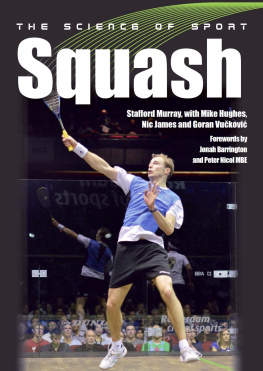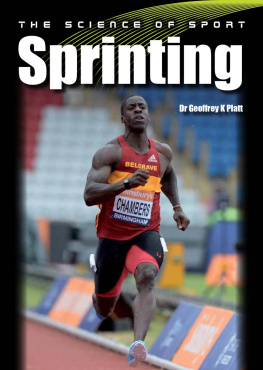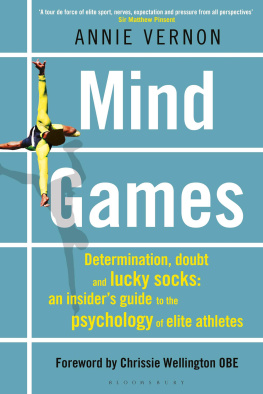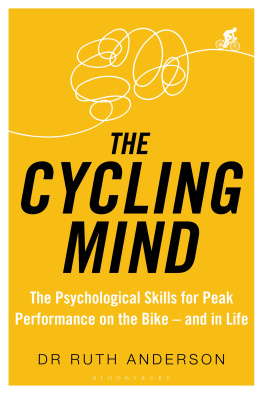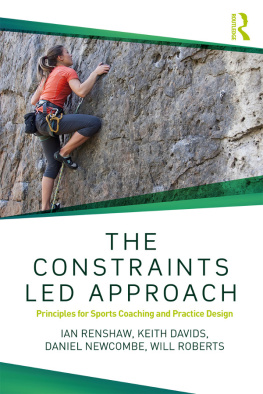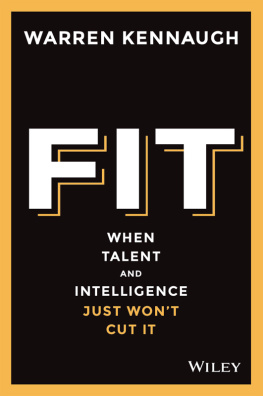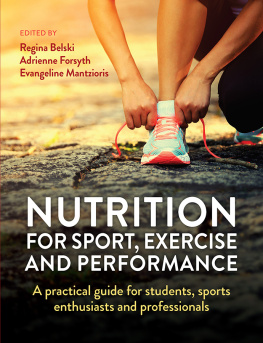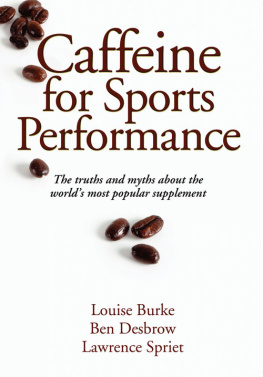
Note
While every effort has been made to ensure that the content of this book is as technically accurate and as sound as possible, neither the authors nor the publishers can accept responsibility for any injury or loss sustained as a result of the use of this material.
Published by Bloomsbury Publishing Plc
50 Bedford Square
London WC1B 3DP
www.bloomsbury.com
First edition 2012
This electronic edition published October 2012
Copyright 2012 Tim Kyndt and Sarah Rowell
eISBN: 978 1 4081 8215 4 (e-book)
All rights reserved
You may not copy, distribute, transmit, reproduce or otherwise make available this publication (or any part of it) in any form, or by any means (including without limitation electronic, digital, optical, mechanical, photocopying, printing, recording or otherwise), without the prior written permission of the publisher. Any person who does any unauthorised act in relation to this publication may be liable to criminal prosecution and civil claims for damages
Tim Kyndt and Sarah Rowell have asserted their rights under the Copyright, Design and Patents Act, 1988, to be identifi ed as the authors of this work.
A CIP catalogue record for this book is available from the British Library.
Acknowledgements
Cover photographs: front Getty; back Shutterstock
Inside photographs: Shutterstock, except by Dave Gardner.
Commissioned by Kirsty Schaper
Edited by Nick Ascroft
Sign up for newsletters to be the first to hear about our latest releases and special offers
Over the years of competing internationally, Ive had the privilege of getting to know a large number of athletes from a wide range of sports. They are a group of inspiring, driven individuals and as diverse in their characters as they are in their sports. There are, however, a few things that unite them. One of these is that no matter how confident, how experienced, how successful, how ambitious they are, none of them claim to have succeeded on their own. Credit is always given to the people behind the scenes: the wider team, the people who dont often get the public recognition or share the limelight. Without their support the medals, the awards, the successes of the athletes would be a lot tougher to come by and in many cases might never have been achieved.
I have worked closely throughout my career with that wider team of support staff, and as the expectation of my performance has increased, so has my expectation of the people I work with. It might seem an unfair expectation, but as a world-class athlete I want to work with a world-class team to push me, support me, challenge me and inspire me. I consider myself incredibly lucky that in this country we have a vast wealth of talent in fields such as psychology, strength and conditioning, physiotherapy, nutrition, and biomechanics. There is clear pride in being a valuable part of a successful team. It is not only athletes who want to lead the way in their sport. Support teams too are often leaders in their own field and have as much drive, determination and ambition to push the barriers as the athletes have. I have been repeatedly impressed with the passion, the excellence, the performance, the honesty, the genuine care, the values and the communication skills of those I work with. Athletes respect individuals who have clear values of their own, who can build trusting relationships, who are strong but not unyielding and, crucially, who have the ability to see the athlete as a whole person, not just a sportsperson.
These skills are not always easily acquired. One of the toughest things to handle is the transition from a learning situation to the practical application of what has been learned. Practitioners can learn the theory of their job in the classroom, but it is far more difficult to learn how to work in a high-performing team with multiple interrelated parts with often apparently competing interests, all under enormous stress in high-pressure situations. How, for example, do you balance the needs of overtired athletes with the demands of determined coaches when they conflict and you are the person caught in the middle?
There are hundreds of practitioners working in sport who have the right level of theoretical and practical technical knowledge of their discipline, whether it is coaching, science or medicine, but as Tim and Sarah explain in this book, it is how you apply these skills, how you work with other people, and having a strong understanding of self that makes a truly great practitioner. I have had the pleasure of seeing the work that Tim and Sarah do in developing practitioners at the start of their high-performance career, and this book is a great adjunct to that.
I would recommend that anyone who wants to work in high-performance sport reads it not only to get a better understanding of the wonderful but hard world they want to enter, but most importantly to get a true understanding of the skills you need to be successful in it.
For people already working in this area, I urge you to keep trying for more: never to feel that you have done enough or achieved sufficient. Keep improving, keep learning. Theres always more that can be done. For those starting out in this field, I would say you are at the start of a fantastic journey, and how that journey unfolds and where it leads is up to you. Use the skills you have been taught and listen to the voices in this book while asking yourself what you would do in each situation. Get to know yourself, challenge yourself and set no limits on yourself. Everything that has gone before can be bettered and this is your opportunity to make that difference.
Katherine Grainger: multiple Olympic medallist, Rowing
Achieving excellence as a coach, sports science or sports medicine practitioner or other member of the support team in high-performance sport requires you to have excellent technical or discipline-specific skills. But those skills alone are not enough. Under the intense pressures of elite sport, certain coaches and applied practitioners are able to thrive and deliver outstanding support that helps those athletes they work alongside to reach the podium. However, many others with equal technical prowess, falter and fail. The difference between these successes and failures is often laid at the door of so-called non-technical skills, as though these skills were a separate discipline to the technical ones. The reality is quite different. This book is therefore for anyone interested in, or currently developing a career in, high-performance sport.
Technical and non-technical skills are two sides of the same coin: together and only together they deliver the excellence that remains beyond reach if the two were dissociated. The market knows this and that is why employers are looking for people who have not only the technical skills, but also the skills to best deliver them. Performance directors, institutes of sport and national governing bodies all want coaches and applied practitioners who have more to offer than just their technical excellence. They place greater value on those with the skills that enable them to deliver their technical services in a way that supports and ultimately helps to enhance the athletes performances.
WHAT THIS BOOK COVERS
Aspiring practitioners and coaches need to be able quickly to gain the trust, confidence and collaboration of the athlete as well as the rest of the support team. That requires excellence in interpersonal skills and those with that level of expertise tend to rise to the top in high-performance sport.
Interpersonal skills are best viewed as the scaffolding that supports, indeed enhances the delivery of our technical skills. They are the people skills: how we relate to others and how we build effective working relationships with them, as well as how we as individuals cope with factors like additional pressure and stress. These skills develop from an understanding of our own personality, our values, our motivations, our emotions and our behaviours. This self-awareness enables us to raise our technical game in many areas, such as communicating, influencing, teamwork, managing conflict, performing under pressure, inspiring, managing change and leading others. However, the truth is that for many technical people, these interpersonal techniques can be hard to master. Like any technique, some people appear to be more naturally gifted, but everyone can develop them to the level of a skill. Those that do, have a clear source of advantage in reaching the highest positions working with Olympic, Paralympic and professional sports.
Next page


